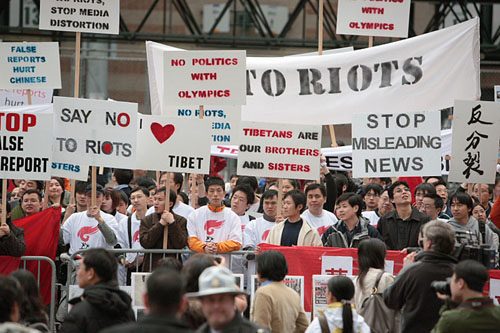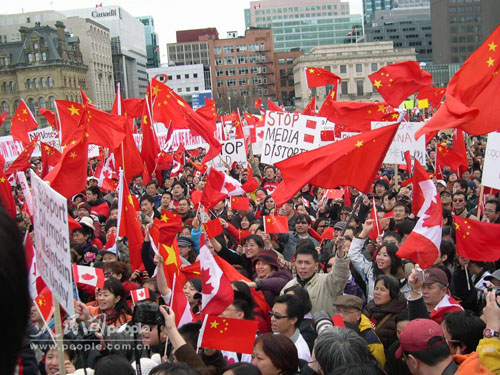"The bias against China is in their bones and blood. They just grow with it. That’s how they are raised," Luo added.
"In the West the calculated manipulation of public opinion to serve political and ideological interests is much more covert," Noam Chomsky, the famous American linguist and political activist, wrote in his article entitled How Propaganda Works in the West in 2007.

Some westerners are also confused. "The closer China has moved toward our own system, the more hostile the US government has become," Justin Raimondo wrote in his long article “Why they hate China”, published on Antiwar.com, March 26. "....We are, in this sense, our own worst enemies," he concluded.
Another Internet user from Europe posted in China.org.cn's online forum, asking: "I was very surprised by the scale of the French attacks on China in the newspapers, on the French television and in the streets during the passing of the torch and couldn't really understand why no one presented a more objective view on the subject. In a few weeks China had become 'the bad guy', and the Dalai Lama a kind of holy savior.... French are by tradition very suspicious of religious leaders, why, suddenly, would French press and television depict Tibetan theocracy as a cause to fight for?"

In the Western news, the common approach would be pro-Tibet. Violent riots could be "peaceful protests" because they show nothing violent on their TV screens. When the Western journalists reported the Chinese official death toll in Tibet, they never forgot to routinely add one line that "there's no independent investigation to verify the number". But what they do and maybe deliberately forget is that the Dalai exile-government's number was also never be verified by any independent investigation. But Westerners chose to believe the hearsay as if it is the truth.
They also suffer memory loss that China peacefully liberated Tibetan people from its old serf system and signed a peaceful agreement with the Dalai Lama as early as 1951, not in the so-called "failed uprising" year of 1959. Even during World War II and the civil war in China, when the central government of the Republic of China had weak control of Tibet, Tibet was never a country with its own sovereignty.